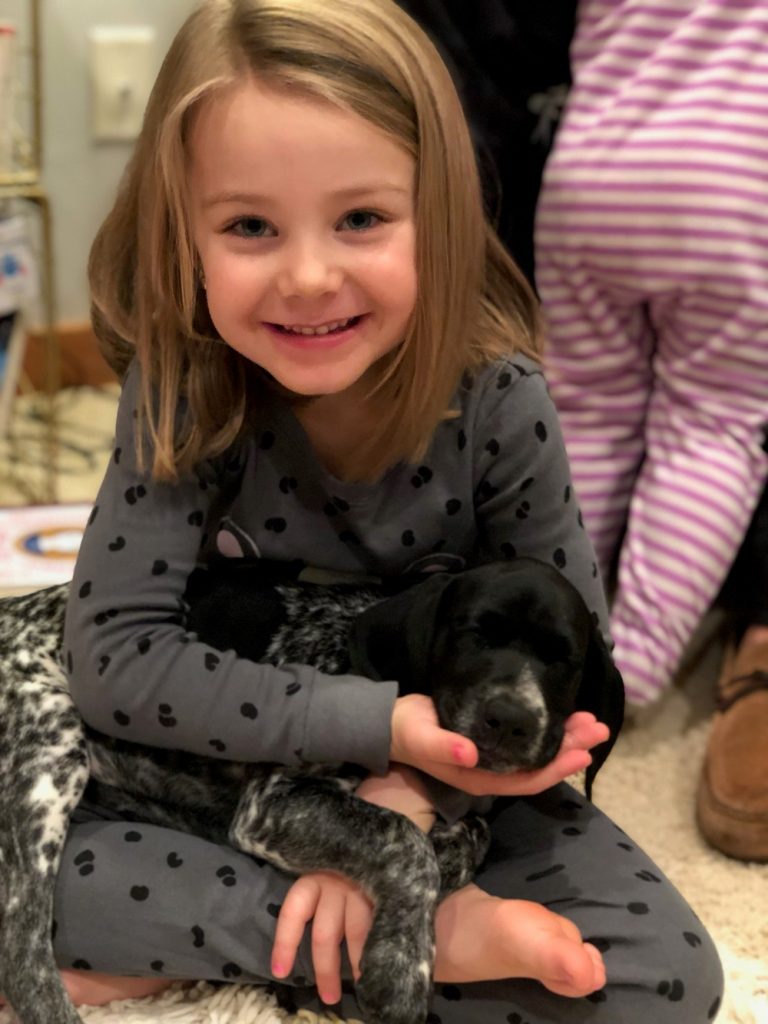Everyone wants that perfect dog. That dog that listens the first time they’re called. That dog that sits patiently at the door and waits to be let out. That dog that doesn’t bolt at the first sign of freedom. And that dog that is walking nicely on a lead and not dragging the handler around. Here are some things I do with my dogs to help make them better companions as well as building a foundation for their hunting career.
My bird dogs are house dogs, as well as hunting dogs, and there are a lot of things you can do with them that will make them better housemates while prepping them for their future formal hunt training. When I give them a command that command is to be followed until they are released from that command. For instance, when I tell them to sit that means sit down until I say otherwise. When I tell them to heal that means heal until I say otherwise. This does a couple things. First, it teaches the dog the true meaning of the command and not just “touch your butt to the ground and get a treat”. It also displays your dominance over the dog, which is important. They get to leave when YOU decide they can, not when THEY decide they can.
I also do A LOT of place training with my bird dogs. Place training is simply having a place YOU put the dog and the dog is to remain there until you release it. In my house we have dog beds and I will often tell my dogs to “get on it”. One advantage of this is that it’s a good way to let a puppy settle down. We’ve all had a puppy in the house that gets wound up and won’t settle down. While it is important to let a puppy be a puppy, it’s also important to be able to calm that puppy down when enough is enough. Another advantage to place training is that it preps the dog for steadiness that it will need in the field whether it be a duck or upland dog. Sitting on a dog bed and calming down is an awful lot like sitting in a duck blind and waiting to be released for a retrieve.
For my hounds, I give them a lot of play time in the yard, or take them on walks, letting them be independent and learn how to use their nose. But I try to solidify the recall to their name as early as I can. They can go be independent but at the same time when I call their name I want them immediately by my side. Once again, this is setting them up for their future hunting years when I may have to call them off a hot track or just want to call them off a tree without having to lead them. A good hound must be independent, a well-bred hound will be, but they must also have a handle to be a more enjoyable hound.
I spend a lot of time with my hound puppies, letting them get into trouble and giving them a firm “NO” when they do and discouraging the behavior. Once again, this is making them a better pet but it will also make breaking them from off-game much easier in the future. They’ve been there and done something they weren’t supposed to do and, most importantly, know what “no” means.
Dogs are pack animals, we all know that to be true, but what does it mean. It means that dogs are always striving to be the top-dog, the leader. And since you, as the handler, are also in their pack that means they are also trying to dethrone you, even if you don’t realize it. You believing you’re the pack leader isn’t enough, the dogs must believe it as well. A dog that acknowledges that you are the Alpha is a dog that is more relaxed and willing to take direction from you.
By having structure for your puppies at a young age they are learning how to learn. They are learning how to turn off pressure associated with simple commands which will translate in the future during steadiness training for your bird dog or trash breaking your hound. The more accustomed a dog is to turning off pressure the more trainable it will become.
Sometimes we worry too much about teaching a puppy to hunt. If it’s well-bred, we don’t need to teach it to hunt, it already knows. But we must teach the puppy how to act. The best way to do that is to spend time with them. The more time you spend with them the better you will know your dog and the better they will know you and what’s expected of them. A well-behaved dog is a dog that has spent countless hours with its handler and knows its role in the pack. So go on, get that puppy, get all the puppies, but make sure you’re willing and able to spend the time with it that it deserves.
Ross Ellwanger







